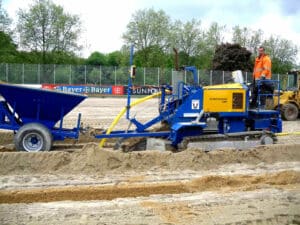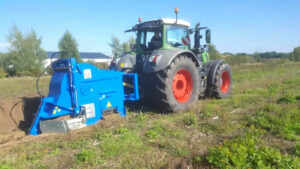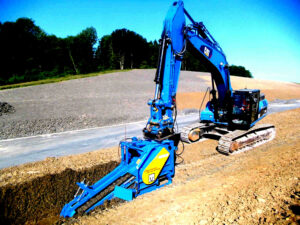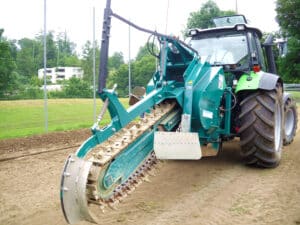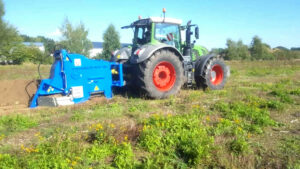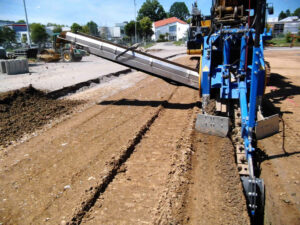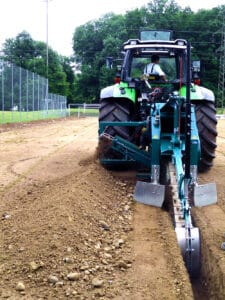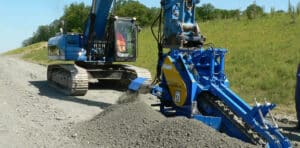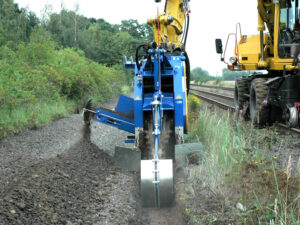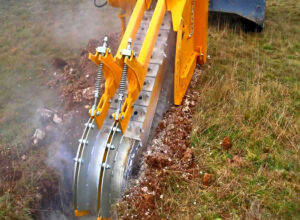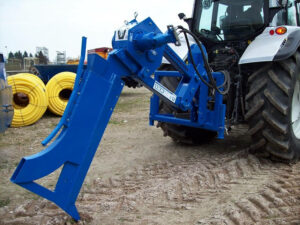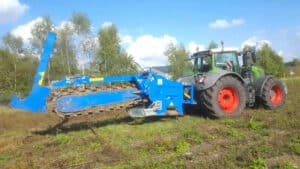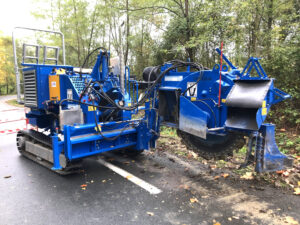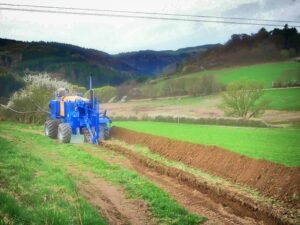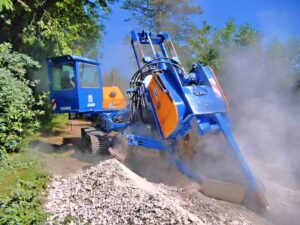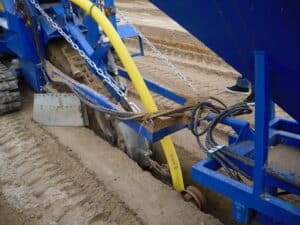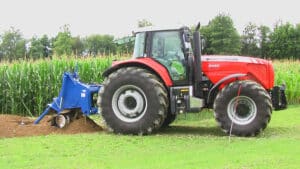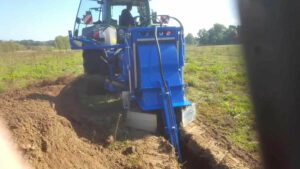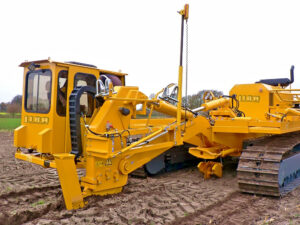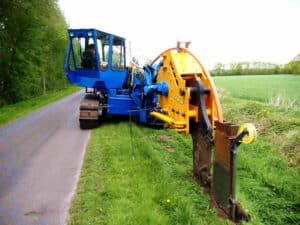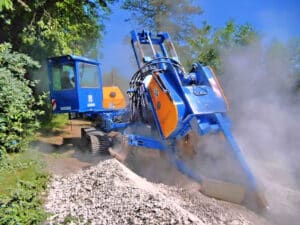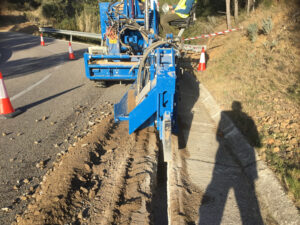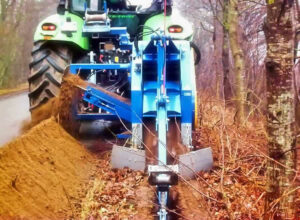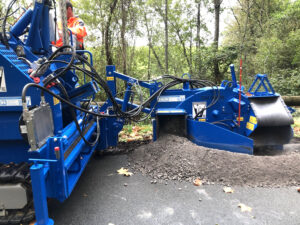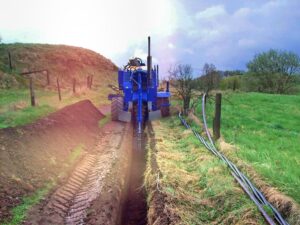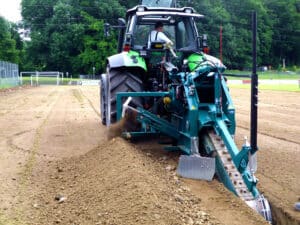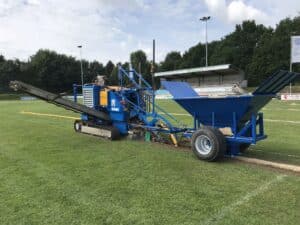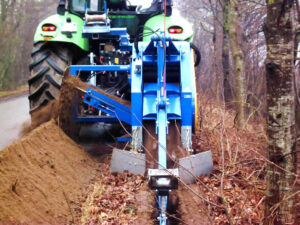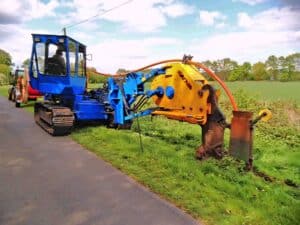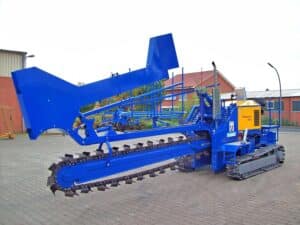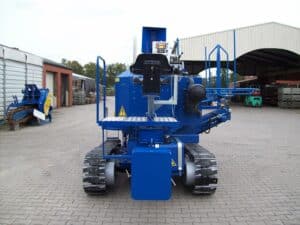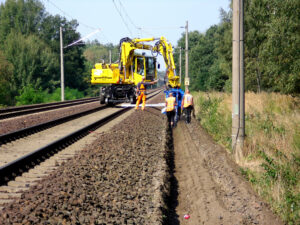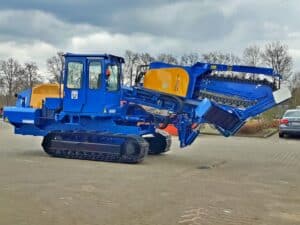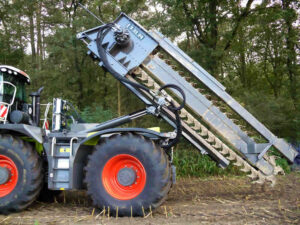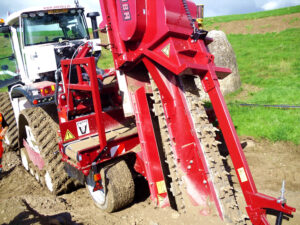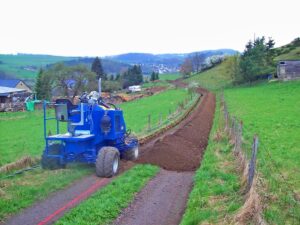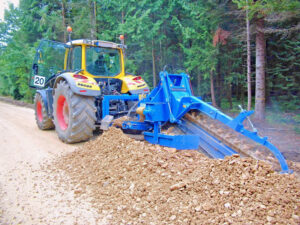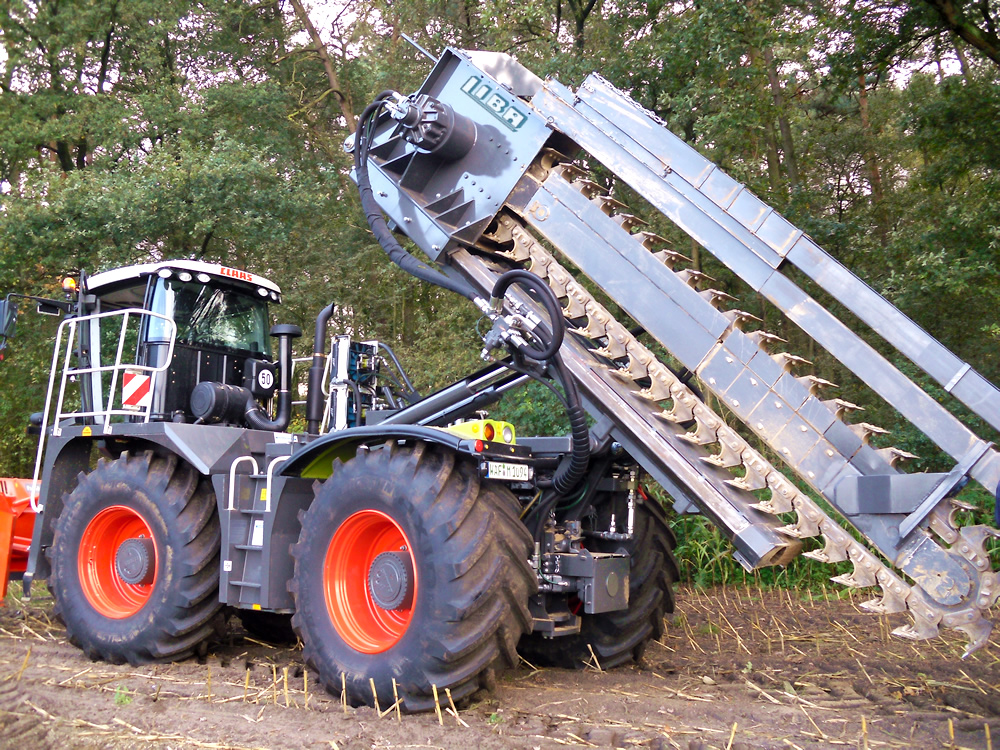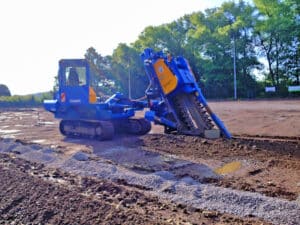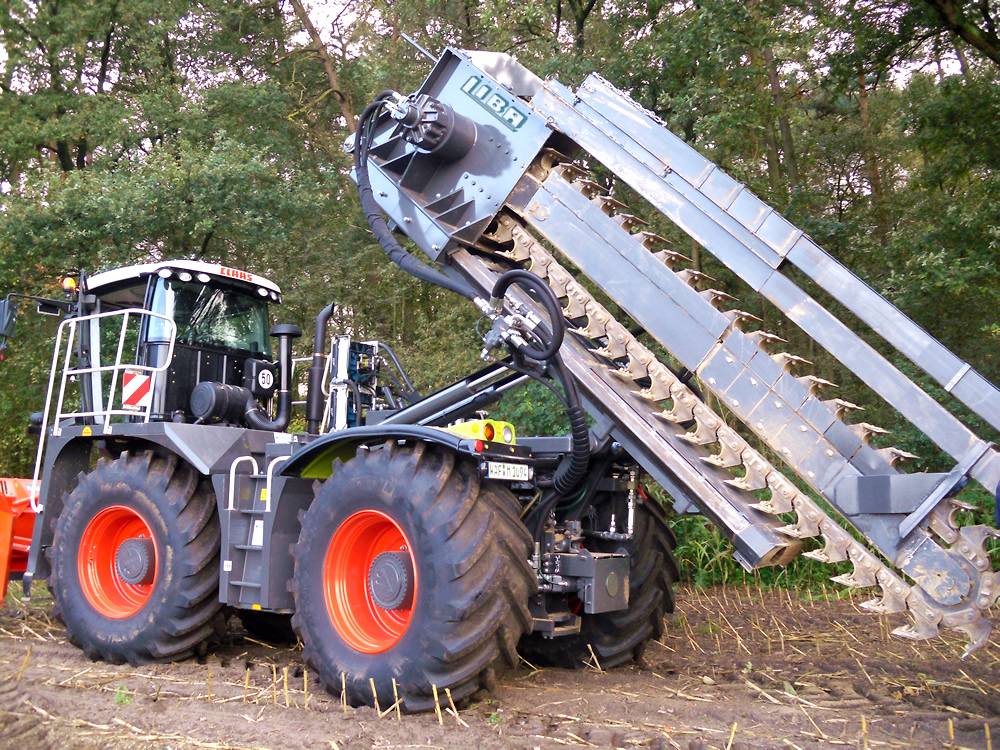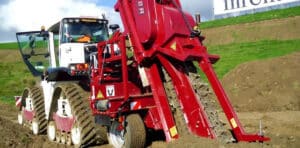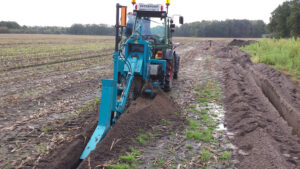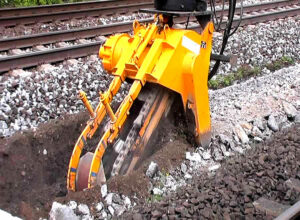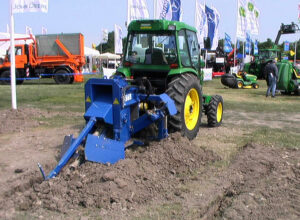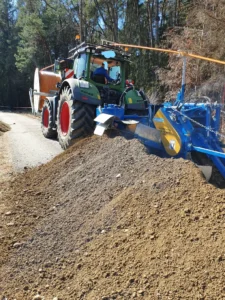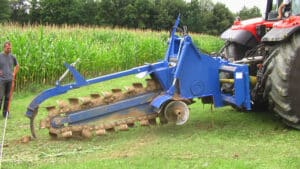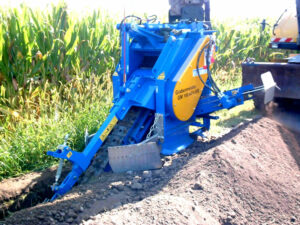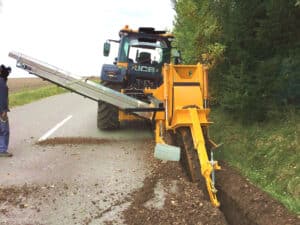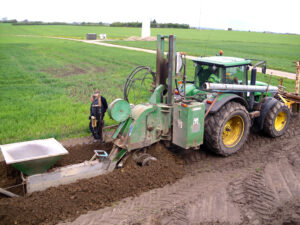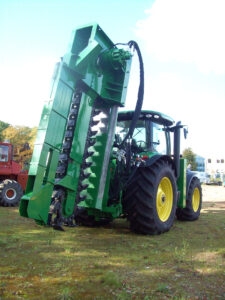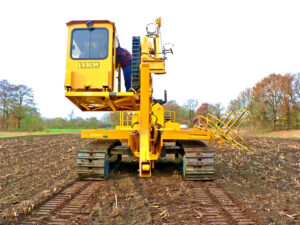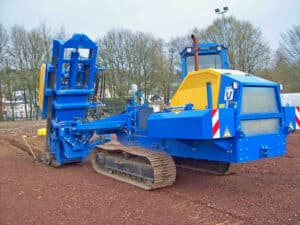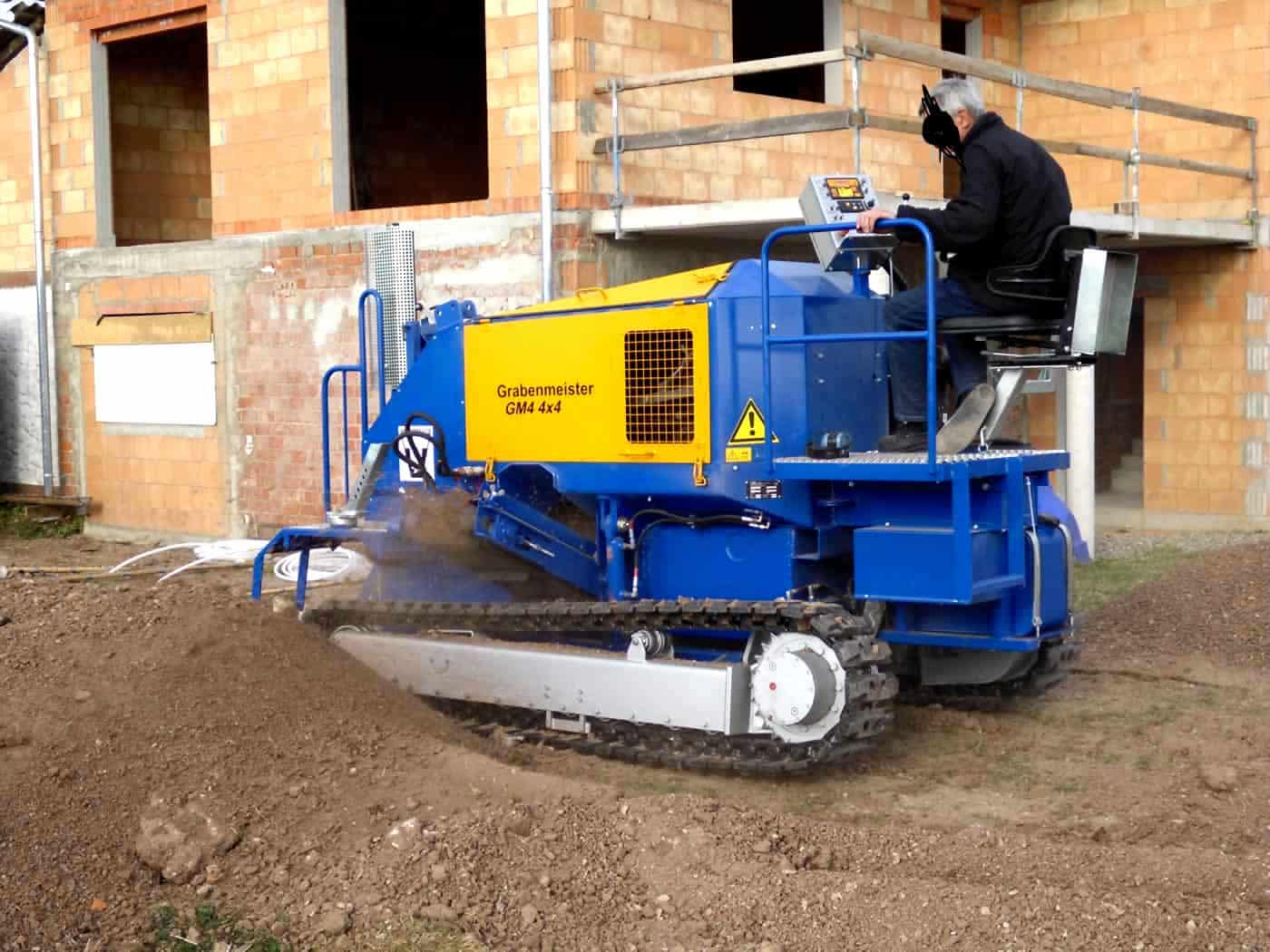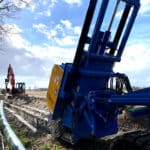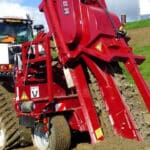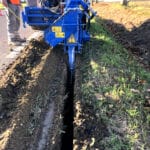In construction, a trencher can be used in several ways. This is due to the versatility of the milling machine. Especially in the construction industry, a lot of work can be done with the trencher. Here are some ways a trencher can be used in construction:
- Laying pipes and cables: A trencher can be used to create trenches for laying pipes and cables. These trenches can be used to lay water, gas, electricity and communication lines.
- Sewer: A trencher can be used to create trenches for the installation of sewer systems. These trenches can be used to lay sewage pipes and drainage systems.
- Landscaping: A trencher can be used to create trenches for landscaping, such as installing irrigation systems, drainage, or creating patios.
- Road construction: A trencher can be used to create trenches for road construction, such as the installation of curbs, drainage systems or cables and pipes.
- Foundation work: A trencher can be used to create trenches for foundation work, such as installing retaining walls or preparing the ground for building construction.
It is important that the trencher is selected according to the needs and requirements of the construction project and operated by qualified professionals to ensure safe and efficient use.
Advantages of the trencher
A trencher is used to cut trenches in the ground. In construction, the use of trenchers has many advantages, including:
- Fast trenching: A trencher can excavate large amounts of soil in a short time. As a result, the working time can be shortened and the project can be completed faster. An example would be the laying of lines or pipes, where the trencher can quickly and efficiently excavate the ground to make room for the lines.
- Less damage to surrounding terrain: Compared to other excavation methods such as manual trenching, a trencher causes less damage to surrounding trees, plants and other terrain features. The machine is also capable of working in tighter areas, reducing the risk of damage to adjacent buildings or other structures.
- Precision work: A trencher is capable of digging trenches with high precision. This is especially important when installing pipelines or cables, where the trenches must be excavated to certain depths and widths. A trencher can also help reduce the need for rework.
- Cost savings: using a trencher can also result in cost savings. Since the machine works fast and does precision work, it can save time and labor cost. This can help reduce overall costs, especially on large projects.
Examples of the use of a trencher in construction could be:
- Laying water or sewage pipes
- Installation of electric cables or fiber optic cables
- Erection of fence posts or barriers
- Digging trenches for foundations of buildings
- Laying drainage pipes in streets and parks
- Installation of irrigation systems in gardens or golf courses.
To get a better insight into the performance and capabilities of the trencher working speed, we recommend you to watch our videos on https://lingener-baumaschinen.de/videos/. There you will find informative content and hands-on demonstrations that will show you how this machine can revolutionize your construction project. In addition to this, we invite you to visit our video channel on YouTube. There you will find more videos that provide detailed insights into the functions and use of the trencher working speed.
Suitable trenchers for work in the construction industry are:

Renewable energies and trenching – Efficient infrastructure for a sustainable future
The promotion of renewable energy is crucial for a sustainable and environmentally friendly future. When installing renewable energy infrastructures, such as geothermal probes or underground
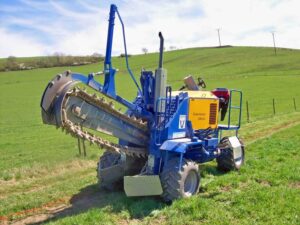
GM 4 All-wheel drive – sports field drainage with the trencher
The GM4 4WD trencher from Lingener Baumaschinen is a powerful machine designed for sports field drainage. The machine has a powerful 4-cylinder diesel engine and
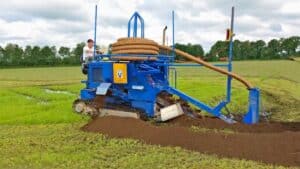
GM 4 Caterpillar – trencher for laying fiberglass
The GM 4 crawler trencher from Lingener Baumaschinen is a special machine designed for fiberglass laying. It is a tracked tiller ideal for use in
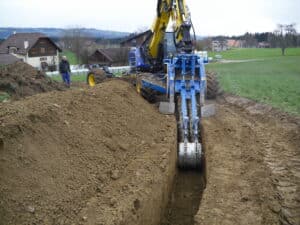
GM 140 AFH-600 – Trencher for pipeline construction
The GM 140 AFH-600 trencher from Lingener Baumaschinen is a powerful machine specially designed for use in pipeline construction. It is ideal for the construction


